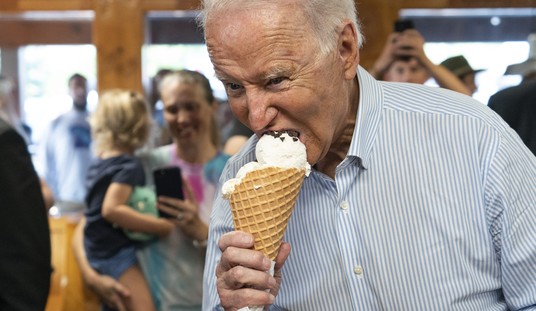Things are heating up in Eastern Europe and Biden is determined to make sure we get burned by it. Basically, there’s the threat of war brewing — no one’s really sure at this point if it’s anything more than a threat — because Vladimir Putin is making moves like he might want to invade Ukraine (although he’s insisting that’s not what the 100,000 troops near the border would do), and Biden is willing to commit U.S. troops to stop it, says the man in the Oval Office.
There’s a lot to unpack on the Ukraine situation, and I’m no expert on the history of the region; but I do know Putin would very much like to get the Soviet Bloc band back together. Since the fall of the Soviet Union, the Russian leader’s been pretty clear about wanting to be the guy to reclaim some of the nation’s former glory (see: Crimea).
But there’s another, far more practical, consideration, at least to European nations like Germany: energy. Natural gas to be precise.
[A]bout 40 percent of natural gas consumed in Europe comes from Russia. And this dominance is enhanced by the major customer being Germany, which explains why it is being marked “absent” from most of the diplomatic pressure that is aimed at Moscow. By all means, allow yourself a wry smile about Berlin’s history, but the result is that British military transports avoided flying through German air space last week to deliver anti-tank missiles to Ukraine. More such munitions are coming from the U.S. but their flight paths are not clear.
A side lesson in political realities: Germany’s particular dependence on Russian natural gas is also a consequence of going “green.” The country has moved away from nuclear power and coal to generate electricity. Natural gas was supposedly the solution. Russia has been a reliable supplier, but the real cost is only now becoming apparent to many.
…
We are facing an unusual event: An energy-centric crisis that isn’t Middle East-focused. But that is not to say it won’t have implications for that region. High oil prices are good for oil-rich countries and bad, i.e. destabilizing, for those that missed out on hydrocarbon wealth. Sanctions-hit, but oil- and gas-wealthy, Iran will benefit, all the more so if it is perceived to be withstanding American pressure to restrict its nuclear activities. Talks in Vienna seem to be concluding without agreement.
A legitimate question many are posing is why the U.S. might want to get involved in this situation. Is there some reason that pushing back against Russia is in America’s interest? Sure, we’ve had diplomatic relations with Ukraine since the bloc collapsed, but they’ve never been a particularly stable place. And they’ve certainly had their fair share of corruption.
Some of it even comes perilously close to the guy in the Oval.
So this doesn’t seem as much like an America problem as it does a Biden problem. Which has been the difficulty with his presidency from the beginning…and it doesn’t look like it’s destined to change any time soon.
Then of course there’s the time-tested truth that war distracts from failed domestic policy (of which there is much) and also has the added benefit of being quite profitable for that infamous military-industrial complex.
The neo-cons appear to be back wearing Democrat clothes.
I cover all that on the show today, as well as offer thoughts on the eerie but compelling “Macbeth” (trailer below). And there’s a bit about China dissing Hollywood. Because of course they are.
Give it a spin.
The show lives on Spotify and you can also find me at iHeartRadio, Apple Podcasts, FCB Radio’s Spreaker, and Deezer.













Join the conversation as a VIP Member